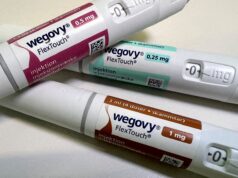Recovery and Rest for Muscle Growth
Many people focus intensely on their training and nutrition when trying to build muscle, but they often overlook one crucial aspect—recovery. Without proper rest and recovery, your muscles won’t grow efficiently, and you risk injury, burnout, and slow progress. Recovery is when the real magic happens; it’s the time when your body repairs itself, grows stronger, and prepares for the next workout.
We’ll explore the science behind muscle recovery, the best ways to optimize rest, and how you can maximize gains by balancing your workouts with proper recovery strategies.
Why Recovery is Essential for Muscle Growth
Muscle growth, or hypertrophy, doesn’t occur during your workout—it happens afterward. When you train, you create microscopic tears in your muscle fibers. Your body then works to repair these fibers, making them bigger and stronger in the process. However, without adequate recovery, this repair process is incomplete, leading to muscle fatigue, stagnation, and even regression.
Recovery also plays a critical role in preventing injuries. Overuse injuries, such as tendonitis and muscle strains, often stem from excessive training without sufficient rest. Moreover, prolonged periods of inadequate recovery can lead to overtraining syndrome, a condition characterized by chronic fatigue, decreased performance, and increased susceptibility to illness.
The Science of Muscle Recovery
Recovery is influenced by several physiological processes, including protein synthesis, glycogen replenishment, and hormonal regulation. After intense exercise, your body increases protein synthesis to repair muscle fibers. This process is fueled by amino acids from dietary protein and is most effective when combined with adequate calorie intake.
Another key factor is glycogen replenishment. Glycogen, the stored form of carbohydrates in your muscles, is depleted during exercise. Consuming the right nutrients post-workout helps restore glycogen levels, ensuring that your muscles have the energy needed for future training sessions.
Additionally, hormones like testosterone, growth hormone, and cortisol play a role in muscle recovery. Testosterone and growth hormone aid in muscle repair and growth, while cortisol, a stress hormone, can hinder recovery if elevated for extended periods. Managing stress, getting quality sleep, and following proper nutrition guidelines help keep these hormones in balance.

How to Optimize Your Recovery
There are several key components to optimizing recovery, including sleep, nutrition, hydration, rest days, active recovery, and stress management. Let’s dive into each of these factors in detail.
The Role of Sleep in Muscle Recovery
Sleep is arguably the most important aspect of recovery. During deep sleep, your body releases growth hormone, which is essential for muscle repair and development. Poor sleep quality or insufficient sleep can disrupt hormonal balance, impair muscle recovery, and reduce workout performance.
To maximize recovery, aim for 7-9 hours of quality sleep per night. Improve your sleep hygiene by establishing a consistent sleep schedule, minimizing screen time before bed, and creating a dark, cool sleeping environment.
Nutrition: Fueling Recovery
What you eat after a workout is just as important as what you do in the gym. Consuming the right nutrients helps repair muscle tissue, replenish glycogen stores, and reduce inflammation.
- Protein: Essential for muscle repair. Aim for 20-40 grams of high-quality protein per meal, with sources such as lean meats, eggs, dairy, and plant-based options like tofu and legumes.
- Carbohydrates: Necessary for glycogen replenishment. Whole grains, fruits, and starchy vegetables are excellent sources.
- Fats: Support overall recovery and hormone production. Healthy fats from avocados, nuts, and olive oil should be included in your diet.
- Micronutrients: Vitamins and minerals like magnesium, potassium, and vitamin C aid in muscle recovery and immune function. Eating a variety of colorful vegetables and fruits ensures you get enough of these nutrients.
Hydration: Why Water Matters
Dehydration can significantly slow down the recovery process. Water is essential for nutrient transportation, temperature regulation, and joint lubrication. After intense training, your body loses fluids through sweat, and failing to replenish them can lead to muscle cramps, fatigue, and decreased performance.
Aim to drink at least 3-4 liters of water per day, more if you sweat heavily. Additionally, consider replenishing electrolytes, especially if you engage in prolonged or intense workouts.
Rest Days: How Much is Enough?
Rest days are crucial for muscle recovery, but how many do you actually need? The answer depends on factors like workout intensity, volume, and individual recovery ability.
For beginners, at least two full rest days per week are recommended. Advanced lifters may benefit from strategic deload weeks, where training volume and intensity are temporarily reduced to allow full recovery.
Active recovery, such as light walking, stretching, or yoga, can also be beneficial on rest days. These activities increase blood flow and help muscles recover without adding excessive strain.
Foam Rolling, Stretching, and Mobility Work
Incorporating foam rolling, stretching, and mobility exercises into your routine can improve flexibility, reduce muscle tightness, and enhance circulation. Foam rolling, also known as self-myofascial release, helps break down adhesions in the muscle fascia, promoting better movement and reducing soreness.
Dynamic stretching before workouts and static stretching after workouts can help maintain joint health and prevent injuries. Additionally, incorporating yoga or Pilates once a week can improve overall mobility and core strength.
Managing Stress for Better Recovery
Chronic stress elevates cortisol levels, which can interfere with muscle growth and recovery. High cortisol levels break down muscle tissue and hinder protein synthesis. Managing stress through meditation, deep breathing exercises, or engaging in relaxing activities can support better recovery and overall well-being.
The Role of Supplements in Recovery
While supplements are not a replacement for proper nutrition, they can enhance recovery when used appropriately.
- Protein Powder: A convenient way to meet daily protein goals.
- Creatine Monohydrate: Helps improve strength, muscle recovery, and overall performance.
- BCAAs (Branched-Chain Amino Acids): Can aid muscle recovery, though they are unnecessary if protein intake is sufficient.
- Omega-3 Fatty Acids: Found in fish oil, these help reduce inflammation and support joint health.
- Magnesium: Supports muscle relaxation and reduces cramping.
Common Recovery Mistakes to Avoid
Training Too Often: Many lifters believe that more training equals more gains, but overtraining can hinder progress. Ensure you have enough rest days and listen to your body.
Ignoring Sleep: Sleep deprivation leads to poor recovery, increased injury risk, and decreased performance.
Not Eating Enough: A calorie deficit can make it difficult for your body to repair and build muscle.
Skipping Cooldowns: Ending workouts abruptly without proper stretching or cooldown exercises can increase muscle tightness and soreness.
Poor Hydration: Even mild dehydration can impair muscle function and slow down recovery.
Muscle growth isn’t just about how hard you train—it’s about how well you recover. Prioritizing quality sleep, proper nutrition, hydration, rest days, and stress management will ensure your body has everything it needs to repair, rebuild, and grow stronger. By integrating these recovery strategies into your routine, you’ll see faster progress, reduce the risk of injury, and achieve better long-term results.
If you’re serious about maximizing your gains, start implementing these recovery techniques today. Your muscles will thank you!







